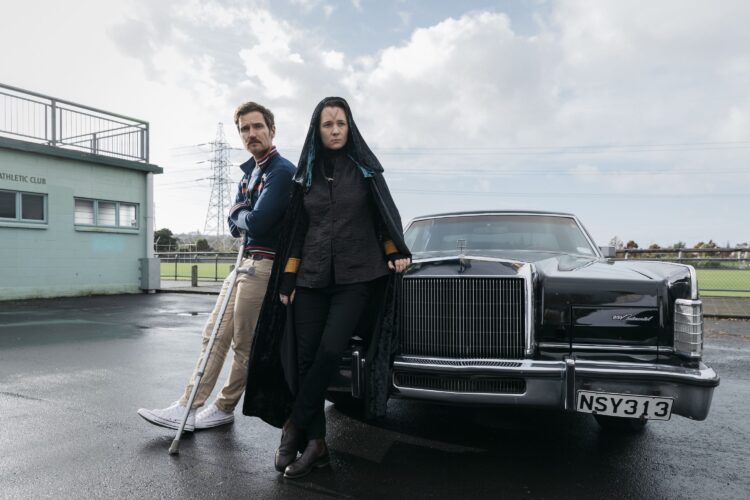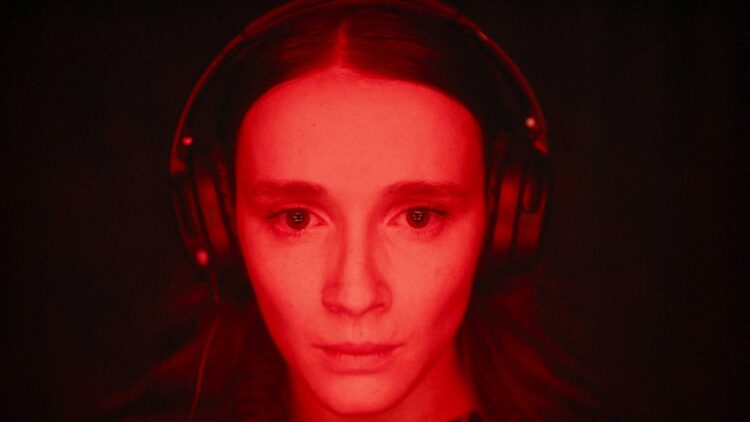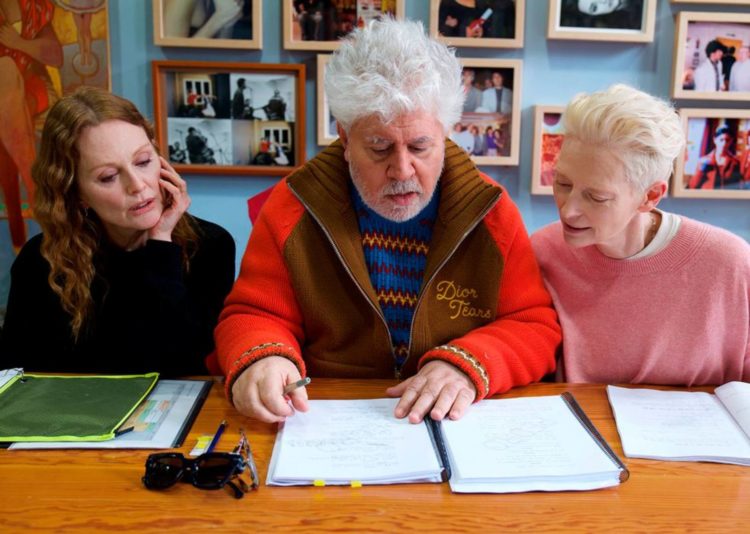

For a film about saving the universe from cosmic evil, stakes couldn’t be lower in The Paragon. What begins as a man’s quest for revenge takes a hard left into the occult and psychedelic, but its scope never expands outside of a small-town setting and smaller-minded protagonist. If anything, the film can’t get any bigger if it wanted to; writer-director-editor-cinematographer Michael Duignan shot it in less than two weeks on a budget of $25,000 New Zealand dollars (that’s around $15K in US currency). In other words: the film couldn’t afford corners let alone cut them. But The Paragon gives its all, embracing its DIY nature to deliver a light and breezy sci-fi comedy, and what it lacks in budget it more than compensates for in low-key charm.
It starts one year after a hit and run left egotistical tennis player Dutch (Benedict Wall) with a limp on his right leg, effectively ending his career as an athlete. Arrogant and bitter, his one-track mind on hunting down the driver of the car that hit him results in his wife kicking him out and no real prospects outside of helping his brother deal drugs. A flier promising the ability to “see the unseen” piques his interest, and he soon meets the psychic Lyra (Florence Noble), who promises him the ability to access higher dimensions and powers––including telelocation, if he joins her two-week protocol. Dutch agrees, with the full intention of half-assing his way into gaining the ability to locate the car. Lyra tolerates Dutch because she believes his “high psionic power” from this near-death experience will help defeat her evil brother Haxan (Jonny Brugh) from taking over the world through an all-powerful crystal called The Paragon.
If The Paragon ever comes close to taking its fantastical premise too seriously, it makes sure to undermine it almost immediately. What makes that approach funny is how the film never casts any doubt over the metaphysical. Lyra’s powers are real, her protocol works, and the threat of Haxan and his psychic slaves controlling space-time is valid. Dutch couldn’t care less about any of it, so the film adopts the same attitude. Thus Lyra––who dons a cloak, bears a large, V-shaped tattoo on her forehead, and only speaks in the most serious of tones––doesn’t have a single person interested in going along with her. Noble’s terrific, deadpan performance as Lyra makes the running bit work, and Duignan comes up with different variations to never let the joke go stale.
It’s Duignan’s ability to keep things moving along that might be his greatest strength––The Paragon never overstays its welcome and makes its flaws easy to forgive. This is Duignan’s first feature after directing several TV series, and the easy, passable pacing and presentation make that obvious; it wouldn’t be a surprise if this was a pilot converted to a feature film. But the clever screenplay subverts expectations just enough, even managing to sneak a nice character arc for Dutch once his new abilities help him obtain a shred of much-needed empathy. Even if its airy, lighthearted tone may make the film too frivolous for some, at least The Paragon knows what it is, and more importantly knows how to have fun with it.
The Paragon screened at the Fantasia International Film Festival and opens on August 30 from Music Box Films.
The post Fantasia Review: The Paragon is a Micro-Budget Fantasy Comedy with Low-Key Charm first appeared on The Film Stage.



